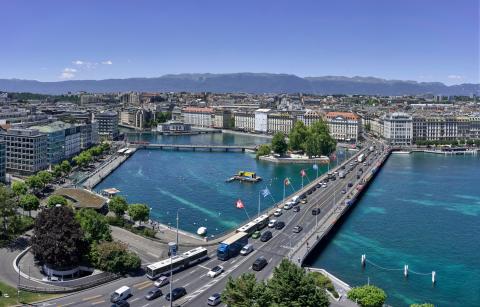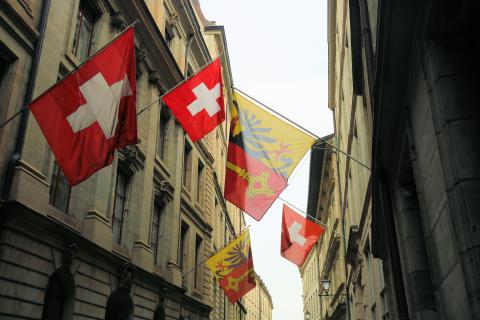
From outrage to solutions: Identifying who owns the world’s oil, gas and mining companies and preventing corruption in the oil sector
Join the debate at Litteraturhuset on 1 June, 16.00-17.30
The Extractives Industries Transparency Initiative (EITI) is organizing a panel debate From outrage to solutions: Identifying who owns the world’s oil, gas and mining companies and preventing corruption in the extractive sector, which will take place on 1 June, 16.15-17.30 at Litteraturhuset in Oslo. The panel will discuss potential solutions to the global problem of hidden company ownership, the approach taken so far by Norway, and lessons learned from the EITI’s work in revealing beneficial ownership of extractive companies.
The draft agenda for the discussion is as follows:
From outrage to solutions: Identifying who owns the world’s oil, gas and mining companies and preventing corruption in the extractive sector
16:15 Opening remarks: the EITI’s beneficial ownership requirements and lessons learnt from Panama Papers
Fredrik Reinfeldt, EITI Chair and former Prime Minister of Sweden
16:25 Norway’s role in the global fight against anonymous companies
Siri Meling, Member of Parliament for the Conservative Party and Member of the Parliamentary Finance Committee, Norway
16:30 Why beneficial ownership matters in the extractive sector: experiences from Nigeria
Zainab Ahmed, Minister of State Budget, Nigeria
16:35 Hidden ownership and implications for investment
Carine Smith Ihenacho, Global Chief Compliance Officer, Statoil
16:40 Call for action: What steps should governments, companies and NGOs take to fight secret ownership
Sigrid Klæboe Jacobsen, Director of Tax Justice Network, Norway
16:45 Q&A
Moderated by Kalle Moene, Professor of Economics, University of Oslo
17:15 End
The panel will discuss potential solutions to the global problem of hidden company ownership, the approach taken so far by Norway, and lessons learned from the EITI’s work in revealing beneficial ownership of extractive companies.
It has been extraordinary to witness the public outrage in response to hidden ownership in the last few weeks, and the calls for action. In Norway, the debate on establishing a domestic beneficial ownership register is gaining pace. In the meantime, the Norwegian EITI reporting process can contribute to bring beneficial ownership of extractive companies operating in Norway out in the open.
The EITI is a global transparency standard for countries that are rich in natural resources. It has 51 member countries across the world, including Norway. In February 2016, the EITI agreed that all member countries must ensure that the oil, gas and mining companies that bid for, invest in, or operate in their country disclose who their real beneficial owners are. The release of the Panama Papers underscores the importance of the EITI’s new beneficial ownership requirements and the move that our 51 countries are taking to address anonymous companies.
The identity of the real owners – the ‘beneficial owners’ – of the companies that have obtained rights to extract oil, gas and minerals is often unknown, hidden by a chain of unaccountable corporate entities. This problem affects other sectors and often helps to feed corruption and tax evasion. People who live in resource rich countries are at particular risk of losing out as extractive assets are too often misallocated for corrupt reasons. It has been estimated that developing countries lose USD 1 trillion each year as a result of corrupt or illegal deals, many of which involve anonymous companies. In 2013, the Africa Progress Panel estimated that the Democratic Republic of the Congo (DRC) in the period 2010-2012 lost at least USD 1.36 billion from five mining deals hidden behind a structure of complex and secret company ownership. According to DRC’s EITI Reports, this is about the same as the country’s average annual revenue from oil, gas and mining in the same time period. Disclosure of beneficial ownership will help lower the risk of financial misconduct.
We hope that you will be able to join us on 1 June to put the focus on solutions and next steps, both for Norway and globally.



